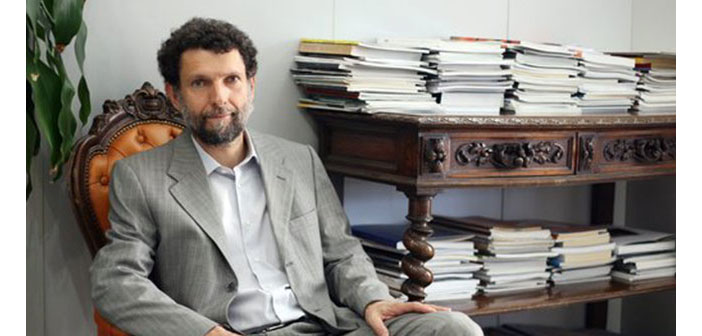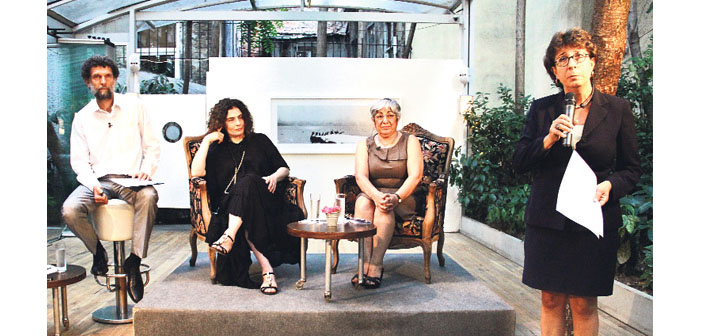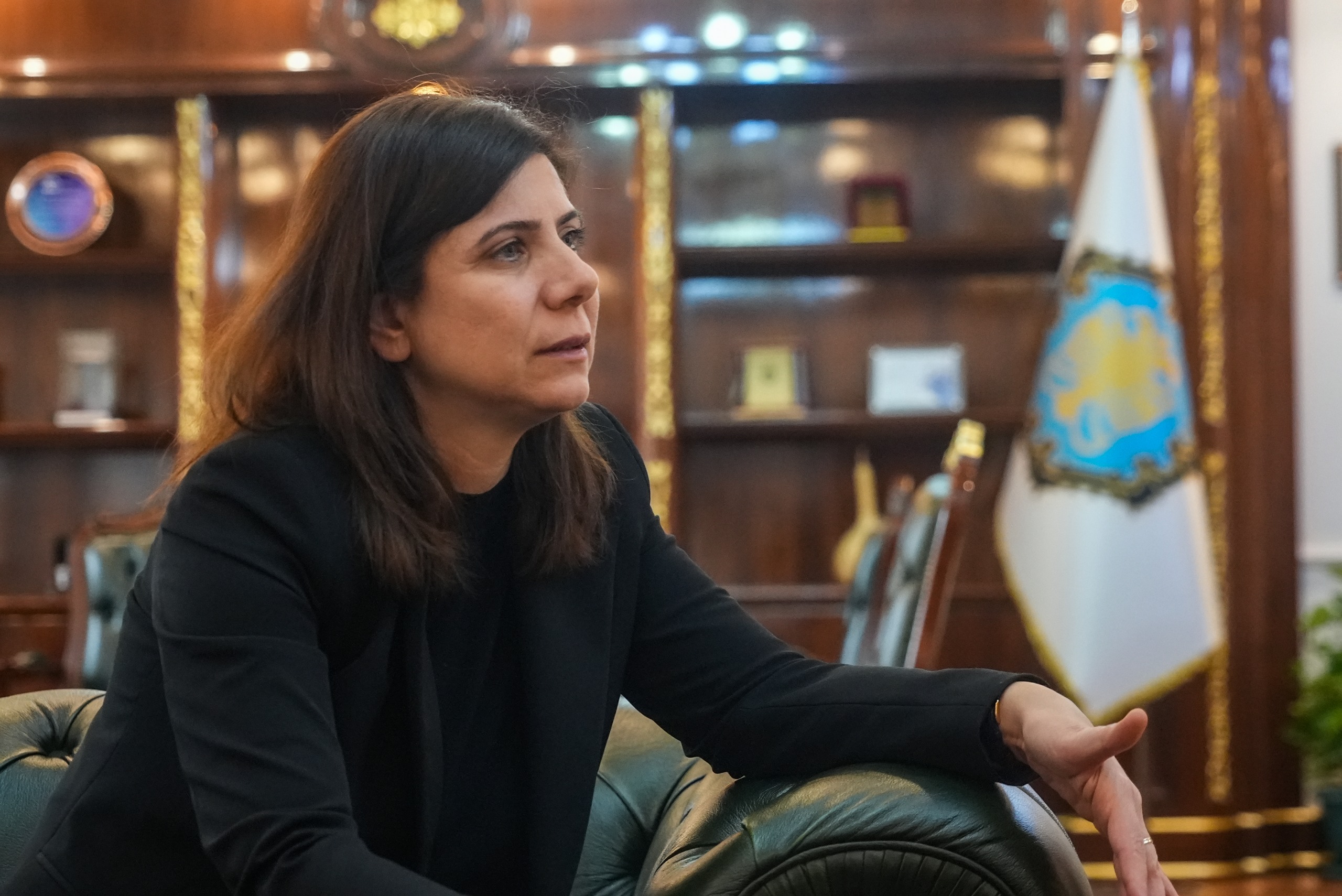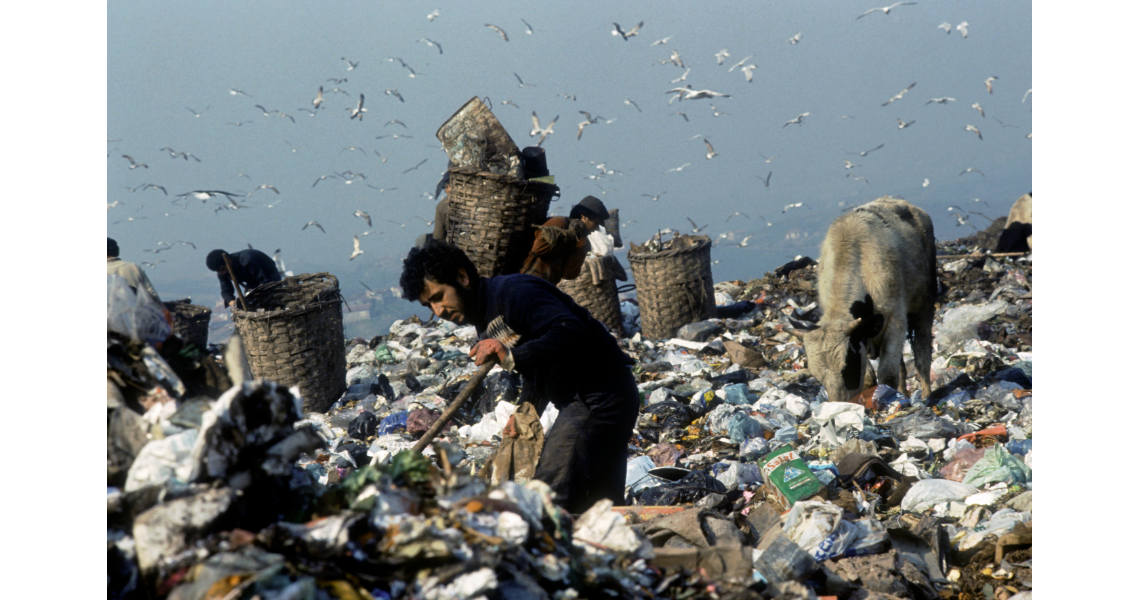Artist and activist Sona Tatoyan wrote a piece about Osman Kavala and share with Agos readers.
When my Syrian-Armenian grandmother, affectionately called Marie nene (Turkish for grandmother), died all alone in her home in Aleppo days before Christmas 2012, it was a Turkish acquaintance who comforted me most. This man, who has since become a dear friend, today unjustly sits in a maximum security prison in Istanbul.
Osman Kavala is one of Turkey’s greatest ambassadors: a man with a fierce commitment to his country’s betterment, fully dedicated towards his nation’s elevation, who holds an unwavering belief in Turkey’s capacity for genuine leadership sourced from love not fear. Osman Kavala is a builder of bridges: a tireless champion of the disenfranchised, of those who have been wounded and silenced (from various minorities in Turkey to street children), a supporter of countless artists, writers, and culture makers.
I was in Istanbul when Marie nene died days before the airport in Aleppo was closed due to the war and the fighting had intensified. None of her five adult children were in Syria to bury their mother – two lived in the States and three had left for Armenia as refugees with their spouses and children months prior. I had at that time known Osman Kavala for only two months. This restrained, quiet gentleman became very moved by my circumstance. Over dinner, with tears in his eyes, he insisted I write a piece about Marie nene. He would translate it into Turkish and have it published in the very well regarded progressive paper Radikal, now defunct due to the crackdown on free speech in Turkey. I must have asked why this Turkish man felt so passionately about my personal tragedy. “I was very close to my grandmother,” he said. His kind voice trailed off, belying a deep sensitivity. So, at his urging I wrote a personal essay about my grandmother. Osman had granted me the opportunity to share my perspective with a wider Turkish audience. Marie nene’s family had been from GaziAntep in Anatolia, she had grown up in Aleppo and had carried the cultural crossroads of that world within her: Armenian, Turkish, Arabic. My grandmother: a woman who had refused to leave her home and relinquish her heart to the dark ...
In the years since I shared my grief with Osman, I would experience the generosity of spirit, time, and support of this most gentle of men in myriad ways. In 2015, he invited me to join him and another dear Turkish friend for the opening of the Venice Biennale. That year the Turkish pavilion was a solo exhibit by the Turkish-Armenian artist Sarkis – a potent and profound way for Turkey to commemorate the Armenian Genocide of 1915. This gorgeous cultural statement was used as a powerful acknowledgment and way to offer healing to the fractured, shared history between Armenians and Turks: to create a bridge. As we wandered through the stunning exhibition admiring the stained glass pieces that hung around the gallery, I glanced over at my friend who was transfixed by a collage that commemorated Hrant Dink. The slain Turkish-Armenian journalist was a close friend of Osman’s. Tears quietly streamed down Osman’s face and his tears ignited mine. Our eyes met for a moment in recognition, then silently we continued on.
I’m a Syrian-Armenian-American with ancestors from Anatolia. For fourteen years I have been working on a film project entitled Three Apples Fell from Heaven, based on The New York Times Notable book by Micheline Aharonian Marcom, that gets to the roots of understanding the brokenness of Armenian identity, the melancholy in our inheritance, and my own profound belief in our capacity to sublimate this trauma towards something constructive. My relationship to Turkey has been multifaceted, complicated, painful -- and a pathway to the opening of my own heart.
At the center of this lives my relationship to Osman Kavala, unravelling the tightness around those dark complications. Osman opened another Turkey for me. A consummate connector, it is through Osman that I have met and formed a beautiful community. Numerous Turkish, Kurdish, Armenian, Syrian artists, writers, directors, scholars and musicians, we have come together to share, to make, to laugh, to cry: to transcend. Osman Kavala is a spiritual surgeon.
Today, shards of past conversations with Osman pass through my mind: Osman engaged, excited as we spoke fervently about compassion. How do we heal Armenians and Turks? How do we confront the truth as a springboard to liberate all of our pain? How do we transcend our legacies? How do we do this together? We do it through art! Through dialogue! Through cultural engagement and opportunities to build mutual respect. Through working together -- coming together. A scene from a breakfast this spring in Berlin loops over and over in my mind: I look into the gentle blue of Osman’s eyes as my voice cracks and I say: “Osman, it is my friendship with you that heals me. It is precisely the energy in this space between us, and what we infuse it with, that frees us both. Osman: you have been my medicine.” … His eyes well up, and we sit quietly for moments, together. And there is truth.
In Osman Kavala, I have known a man fueled by his humanity, not a cultural identity. I have known a human being who has firmly committed to the duty of being a bridge for the fractured -- no matter who or what it is. In Osman Kavala I have found a source of light -- a grand and noble light which has illuminated for me, and so many others, a looming, lifelong darkness. A man who connects in response to the disconnection that so sadly permeates society.
Over these last two years, as Turkey’s grasp on democracy has slipped further and further, I have been worried for my friend. When I saw him last, a couple months ago, my selfish concern for his safety outweighed my understanding of how vital his work is for Turkish society. I urged him to stay in Berlin for awhile, continue the cultural projects from Germany. “I will not leave my country,” he said, “I will not stop the work I’m doing. It’s important. This is my home.”
On October 18 Osman returned to Istanbul from GaziAntep, where he was meeting the Goethe Institut regarding a cross-cultural project (integrating refugees into Turkish society). Upon landing he was detained and arrested. He has been charged with attempts to overthrow the government -- a ludicrous, trumped up allegation as anyone who knows him can attest. When the world needs him more than ever to serve his country and build connections with the rest of us, Osman Kavala sits isolated in a maximum security prison with no trial date in sight.
But the man sitting in prison in Istanbul today exemplifies the best of what is Turkish, what is human: gracious, generous, hospitable, open-hearted, inclusive, keenly intelligent, and with an unrelenting zest for the fullness of life. This grave injustice imprisons our hopes for not just a brighter Turkey, but a brighter world at large.
Osman Kavala: my brave, visionary friend who refused to leave his home and relinquish his heart to the dark ...
How can he when he shines so bright? And those who are blessed to know the support and nourishment, a global community, are in solidarity with this light.
Please visit www.osmankavala.org to know more.





